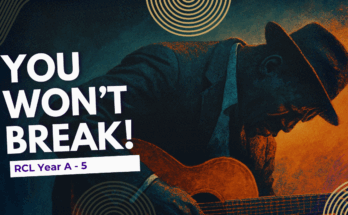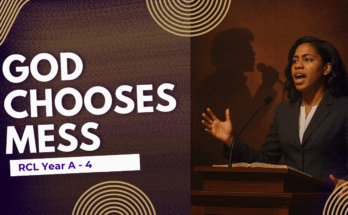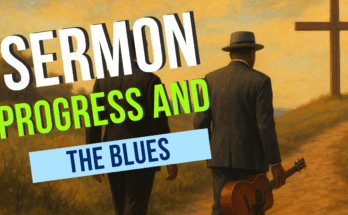As an Amazon Associate I earn from qualifying purchases.
Last night while listening to sermons on youtube and other places, I found a preacher who was “whooping.” As we know, the whoop is one type of sermonic close used by some preachers in the African American preaching tradition. The preacher was summarizing and celebrating the truth of the message. The call and the response, which is an important component of the African American Preaching tradition was in full effect. Then the sermon almost came to a standstill and never fully recovered. The preacher broke the call and response by encroaching on the “response” time by changing the length of the phrases. Once the preacher has come to the close and has established a set number of syllables in his or her phrases, the preacher should not break this with a particularly long, or particularly short phrase.
Keep the Length of the Phrases
The Call and Response requires that there is give and take in the close of the sermon. If the people are to celebrate the message, they need to experience it. And to experience it, we must foster it with the call and response.
However, this preacher was in a form where he would preach 5-8 syllable phrases and then allow the people to respond. Then 5-8 more syllables and allow the people to respond. But then he attempted something close to 16 syllables. And the moment dissapated. The number of syllables is immaterial. The important point is that once the number of syllables are established in the close that you do not deviate drastically from that number.
Two Things Went Wrong
Two things went wrong here. First the preacher attempted to introduce something that should have been introduced in the body of the sermon. The whooping celebrative close requires that there should not be an introduction of new material. We are simply celebrating the truth that was revealed in the sermon.
Next, the preacher did not keep the phrases of generally the same length. Let us assume that you are at the very end of a sermon and you are using phrases of 3-4 syllables like this:
Preacher: And God Said,
Congregation: Yeah
P: Let there be Light,
C:Yeah
P: somebody
C: yeah
P: is in darkness
C: yeah
P: and needs light
C: yeah
P: is there anybody in here
C: yeah
….
Now let us say that you want to add a longer sentence you can do a few things. One thing you can do is simply split up the sentence.
And somebody might know of a problem they are fighting with.”
Becomes
P: somebody knows
C: yeah
P: of a problem
C: yeah
P: that they are fighting
Sometimes repetition is used to tie these short phrases together like:
P: Somebody knows
c: yeah
P: you got a problem
C: yeah
P: unsolved problem
Now if your phrase is too short, you might add in some fillers. I have heard preachers use words like “yeah” or “Hear me?”
Conclusion
In short, once the call and response has been set up in the close of the sermon, then we do not break that give and take by adding phrases that are either too long or too short
Amazon and the Amazon logo are trademarks of Amazon.com, Inc, or its affiliates.








As a yankee transplant preacher from Connecticut assigned in southwest GA, I found this articlevery enlightening.
Great analysis! I’ve seen that happen before.
I enjoy call-and-response in preaching. I have not yet applied it to my sermons but I am still growing. Thank you for this article.
Thanks. You are really helping us preachers in ways that we are ashame to ask help in. God Bless you.
Question, do we always have to “whoop” or use the call and response? Does it make your sermons more effective?
Do you always have to whoop? Short answer is no, but check out this article where I talk about it a bit more…http://shermancox.wpengine.com/to-whoop-or-not.
As to do you need “call and response?” I think yes…in the sense that you should be in tune to the response of the congregation.
Great Article! It’s good to show the “method” to what some see as “madness”!
This is a very good breakdown of the call and response. Some of us do get carried away and loose our meter at times (got a witness!).
If you are going “whoop” by all means you have to refrain from sounding too mechanical. The late Dr. Martin L. King, Sr. once said, “If you’re gonna holler at least let them know what’s hurting you.”
lol…That is correct…you don’t wnat to sound mechanical…but there is a “groove” to it…you wanna ride that groove…
Hello Friends!
I’m a white preacher with quite a few African-American preacher friends.
I have a question:
Where can I go on the internet to hear “whooping”?
Love your website!!!!
Bill
The best place is YouTube…search for “whooping”
first i would like to say thank you for what you do. i was brought to tears when i saw one of your video’s on youtube and registered on your website. my question is, when i read my word, a theme will come to mind i can see where i could preach the mess. but when i go to write it down, it never comes out the way it was given to me. in other words, i’m frustrated because i can’t put my feelings and thoughts on paper. i began to listen to your preaching without notes but my memory is not as good these days. what’s wrong with my approach? thank you for the outline.
I think we can go overboard sometimes with the “call and response” when we try to get people to respond. I have heard preachers who, and maybe this is more common than I realize, frequently during the message say things like, “Can I have an amen?” or “Can you say praise the Lord?” so often it feels like they are asking their congregation to give them a pat on the back for their message. If you have Holy Spirit-filled people in your church, and they are truly hearing the message you shouldn’t have as much a need for asking them to respond, because they will be already responding. Just my opinion. I get a sense of how the message is being received when people are responding without being asked to say this or that phrase.
As an African-American preacher, I am a critic of the whooping style of preaching. We have had 400 years of whooping in the Black church, and that’s enough. The Black church is historically known for it inspiration, while lacking in Biblical information. Biblical illiteracy remains at an all time high, and whooping (Broadway Vaudevillism)has failed to remedy the problem. Here’s a classic scenerio:
Saint One: We had a great service, and the preacher surely preached this morning.
Saint Two: Really? What did he say?
Saint One: I don’t know what he said, but he preached this mroning.
I find that more ministers are spending more time developing their whoop rather than academically preparing themselves for the work of the ministry and this is a travesy in my opinion. Showmanship and entertainment continues to be the norm in many Black church pulpits, and until this changes the growth of the Jackleg preacher will continue. Dr. Martin Luther King Jr., was right, “We have more religion in our hands and feet, than we have in our hearts and souls. We place more emphasis on musclism rather than on spritualism.” I couldn’t agree more.
Perhaps there is a place for both the call and response and edifying word. It is important the the call and response doesn’t detract from or confuse what has gone before in the body of the sermon, but that it recaps what has been said in a way that those in attendance can remember more vividly. Call and reponse without the content from the preceding message is empty, but as a summary perhaps it is a good method.
And remember the audience… what do they need in order to hear you? What is you aim? Is it to save that which is lost and to edify that which is saved? And what does God have to say? What are the results? All these questions should be considered prayerfully.
Good thread…
My Father in the ministry referred to “whooping” as “Broadway Vaudvillism.” In other words, it’s an act. Down through the years we have seen Black preachers depicted on television in a negative light. Flip Wilson, Richard Pryor, and others have shown the idiocy of Jackleg preachers whooping. Whooping is only concerned with entertainment and showmanship. Personally, I never wasted my time developing a whooping style of preaching because I think that the days of whooping is long over. The Black church has been inundated with 450 years of whooping, and enough is enough. The Hip-Hop generation has clearly shown that they are turned off by this style of preaching. Dr. King didn’t whoop, and he was a very effective preacher and orator.
Anyway, I understand that I’m in the minority when it comes to whooping, but these are my thoughts on the topic.
If a sermon has been bathed in prayer, strong theology, good delivery,the tension between Grace and Sin then you have a sermon. alos lets remember that preaching is truth through personality. If you have this then go ahead and “whoop” my brother or sister.
If a sermon have been well laid out with substance and structure, I believe a ill whoop is putting the icining on the cake. In the Great Commission in St. Mark 16:15 we have preaching, but in Matthew 28:19,2o we have teaching. We you are anointed to whoop, whoop on. Much love.